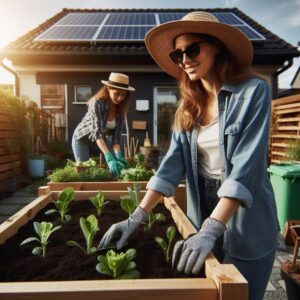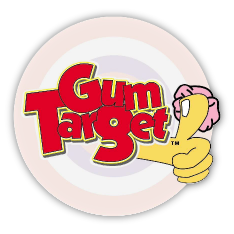The zero waste lifestyle movement aims to keep all materials out of landfills, incinerators, and the environment, promoting a more sustainable and eco-friendly way of living. It encourages a shift from the traditional ‘take-make-dispose’ mentality to one that wholeheartedly embraces ‘reduce, reuse, and recycle’.
Adherents of the zero waste lifestyle opt for products that can be reused, repaired, or, at the very least, recycled, and prefer to refuse what they do not need. This may involve making choices like carrying reusable bags, containers, and utensils, buying in bulk, and choosing sustainable manufacturing options.
Modern chewing gum is a plastic-based product that is both non-biodegradable and a significant source of everyday litter. It contains synthetic rubbers, which can take decades to break down, thus contributing to environmental pollution.
Discarded gum can harm wildlife, stick to animals’ feet, and be toxic if ingested. Cleaning gum from sidewalks and streets requires a significant amount of resources, including time, labor, and cleaning materials, which further contribute to its environmental footprint.
Zero Waste Alternatives to Traditional Chewing Gum
Biodegradable gums use natural bases such as chicle, which is extracted from the sapodilla tree, or other similar organic materials derived from tree saps. Unlike conventional gum bases composed of synthetic polymers, natural bases degrade over time, which considerably minimizes their environmental impact once discarded. These biodegradable gums can break down into harmless, organic substances that integrate effortlessly into the environment, avoiding the pollution associated with traditional gum.
Plastic-free gums are crafted using organic substances that replicate the chewiness of conventional gums without relying on plastic materials. These gums ensure that no microplastics enter ecosystems, presenting a cleaner, greener chewing option. The packaging of these gums is often considered, with many brands opting for recyclable or compostable packaging to complement the eco-friendly nature of their product.
With simple ingredients like natural gum base, organic sweeteners like honey or stevia, and natural flavorings such as mint or cinnamon, people can create their gum. This ensures that the gum is free from any artificial additives commonly found in commercial products. The process of making gum at home educates on the complexities of product creation, fostering a greater appreciation and commitment to sustainable living.
Another viable option within the zero-waste framework is supporting local and organic producers who may offer sustainable gum alternatives. Local production reduces the carbon footprint associated with transportation. Organic certification ensures that the products are free from harmful chemicals, during growth and production, contributing to healthier ecosystems and bodies.
Broader Benefits of Adopting a Zero Waste Lifestyle
 The aim of zero waste is to prevent as much waste as possible from reaching landfills and oceans. People help to decrease landfill mass, thus minimizing the production of methane—a potent greenhouse gas. Less waste means reduced demand for waste management resources, which both conserves these resources and lowers emissions associated with garbage collection and processing. Minimizing pollution and zero waste practices contribute to cleaner air and cleaner water, benefiting all forms of life.
The aim of zero waste is to prevent as much waste as possible from reaching landfills and oceans. People help to decrease landfill mass, thus minimizing the production of methane—a potent greenhouse gas. Less waste means reduced demand for waste management resources, which both conserves these resources and lowers emissions associated with garbage collection and processing. Minimizing pollution and zero waste practices contribute to cleaner air and cleaner water, benefiting all forms of life.
Zero waste encourages the wise use of resources through practices such as recycling and reusing. This means fewer raw materials are extracted from the earth. Such practices can lead to more balanced natural resource management, ensuring that these resources remain available for future generations.
Programs like local composting, communal gardening, and neighborhood clean-ups require residents to work together, fostering a sense of community and mutual responsibility. These activities promote social interaction and support networks among neighbors.
Zero waste practices reduce exposure to harmful chemicals found in processed and packaged foods. Many people adopting a waste lifestyle transition towards fresher, less processed foods which can lead to better health outcomes. Actively engaging in zero waste habits, such as walking to local markets or gardening, increases physical activity, which is beneficial for overall health.
Strategies such as avoiding single-use items, buying in bulk, and choosing reusable over disposable can lead to significant cost savings in the long run. Investing in quality, reusable products, and reducing consumption, households can significantly decrease their spending on everyday items. Composting and growing one’s food can reduce the overall grocery bill while providing fresh produce right at your doorstep.
Living a zero waste lifestyle educates people on ecological impacts, sustainability practices, and how various elements of the ecosystem interconnect. This can encourage more informed decisions in other areas of life, such as energy use and water conservation. Teaching children and peers about these practices can increase environmental awareness from a young age, inspiring future generations to live more sustainably.
Practical Steps to Get Started with Zero Waste
The first practical move is conducting a personal waste audit without formally listing your daily trash. Take notice of what you typically discard. This includes observing the types of waste accumulating in your trash bin — from food packaging to disposable products. Being aware of this can guide you to make better choices.
Opt for items that have less packaging or, if possible, no packaging at all. This habit can significantly reduce your household waste. Shopping in stores that allow you to fill your containers with staple items like cereals, grains, and spices is an excellent approach to avoiding unnecessary packaging.
By choosing durable goods, you end up with less waste in landfills. Choose items that can be repaired or are made from sustainable materials.
Composting transforms your kitchen scraps and yard debris into nutrient-rich soil, perfect for gardening. If you don’t have space for a compost pile at home, look for local community gardens or facilities that accept organic waste for composting.
By creating your clean products, you control what goes into them and avoid the plethora of industrial chemicals often found in commercial products. This reduces reliance on packaged goods and enhances your living environment.
Changes in lifestyle habits don’t occur overnight, and it’s important to remain committed to the cause even when progress seems slow. Each small change contributes to a larger goal, paving the way for significant environmental benefits.



